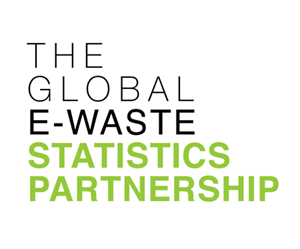At the heart of the convening power of ITU are the
Study Groups. In the Telecommunication Development Bureau, ITU-D Study Group Question 6/2 covers the issue of ICTs and the environment, including circular economy (but also climate change) matters like e-waste and greenhouse gas emissions. Question 6/2 convenes members to address these issues through contributions to the Study Group process which at the end incudes reporting on key findings from contributions, discussions, workshops and other inputs through a final report. Through global partnerships, ITU also convenes different players from public and private sector groups—the electronics industry and the public sector actors such as policymakers and regulators—around mapping and joint visioning exercises for the electronics value chain.. These partnerships, expanded below, include the Circular Electronics Partnership, the Solving the E-waste Problem initiative, the United Nations E-waste Coalition and the Global E-waste Statistics Partnership.
Current Partnerships for E-waste
|
The Solving the E-waste Problem (StEP) Initiative emerged in 2004 as an independent, multi-stakeholder platform for designing strategies that address all dimensions of electronics in an increasingly digitized world. StEP applies an integrated, science-rooted approach to create salient solutions to global e-waste challenges along the entire electronics life cycle and strongly supports strategic approaches towards sustainability such as circular economy and zero waste/emissions. StEP focuses its projects and activities on five life cycle areas – design, production, usage, reuse and recycling, and final disposal of electronic waste. |
On 21 March 2018 at the World Summit on the Information Society (WSIS) Forum, the International Telecommunication Union (ITU) and six other United Nations entities signed a Letter of Intent paving the way for greater collaboration in the area of e-waste management in developing an E-waste Coalition. Further to this, at the 2019 WSIS Forum, three new UN entities signed the Letter of Intent. The Letter's aims include a commitment by the signatories to increase collaboration, building partnership and supporting Member States to address the global WEEE challenge. In line with these aims, three core functions of the Coalition are envisaged: advocacy including awareness raising and campaigns; knowledge and best practice sharing; and the development of a joint intervention model for the implementation of e-waste work at the country level. | 
In 2017, the International Telecommunication Union (ITU), United Nations University – Sustainable Cycles (UNU-SCYCLE), and the International Solid Waste Association (ISWA), joined forces to create the Global E-waste Statistics Partnership (GESP) as a way of addressing the challenges associated with managing e-waste. Since January 2022, Sustainable Cycles (SCYCLE) become a Programme under the United Nations Institute for Training and Research (UNITAR). Today, the GESP is now a Partnership managed by the ITU and UNITAR-SCYCLE. The objectives of the Partnership are to monitor developments of e-waste over time, and to help countries to produce e-waste statistics. The initiative will inform policy makers, industries, academia, media, and the general public by enhancing the understanding and interpretation of global e-waste data and its relation to the Sustainable Development Goals (SDGs). |